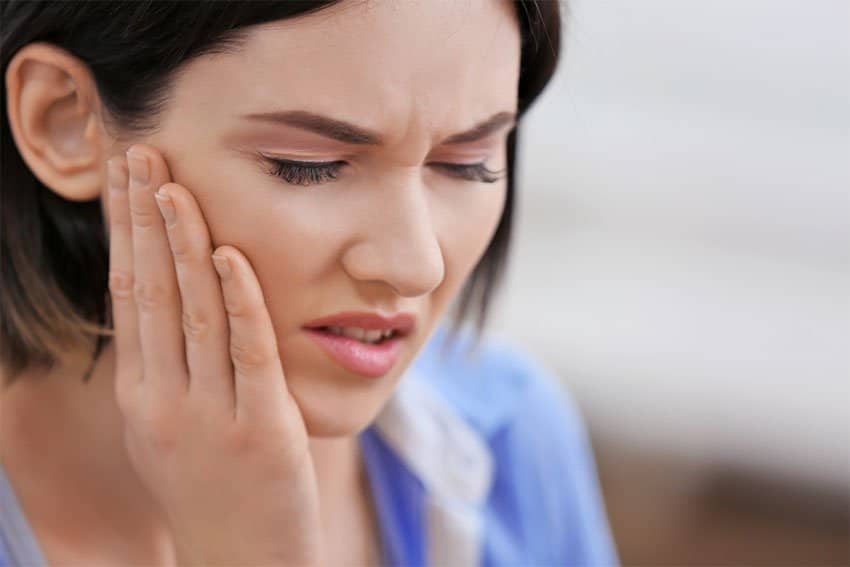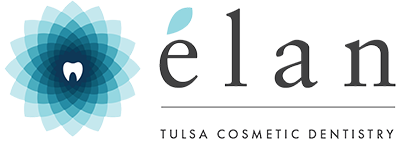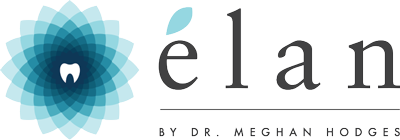What’s Causing Jaw Pain and Headaches in the Morning?

If you wake up with a sore jaw or a headache on a frequent basis, you’re not starting your day off on the right foot. It might leave you in pain for the rest of the day putting you in a bad mood and making simple tasks like eating incredibly painful. If you suffer from a headache every morning and/or a sore jaw, you might suffer from TMJ, sleep apnea, or both.
Common Causes of Morning Headaches
Before we dive into how sleep apnea or TMJ can cause morning headaches, it’s important to rule out other potential causes of headaches every morning.
Hangover – If you drink too much alcohol and don’t rehydrate your body before you go to sleep, you will likely wake up with a hangover that causes much more than just a headache. To prevent a hangover, make sure not to drink too much and drink plenty of water alongside your alcoholic beverages.
Caffeine Withdrawal – If you skip your morning cup of coffee and your body is used to consuming one every morning, you can experience caffeine withdrawal which can cause a morning headache. Try not to drink a cup of coffee every day so your body doesn’t rely on it. If you find that you need caffeine to keep you going, you might not be getting enough sleep or sleeping well enough.
Not Enough/Too Much Sleep – If you don’t sleep enough, you will likely experience more headaches. On the other hand, if you sleep too much, your serotonin levels will become disrupted which can throw off your sleep patterns and cause headaches.
Depression – In addition to low mood states, depression can also cause headaches due to a low serotonin level.
Common Causes of Jaw Pain
Aside from TMJ and sleep apnea, you can also experience jaw pain for several other reasons.
Bad Pillow – If your pillow doesn’t provide you with the right amount of support, you can strain yourself trying to hold up your head. Your pillow might be propped up too high or too low. Try a few different pillows to find the perfect one for you.
Diet and Habits – Pay attention to jaw pain when eating certain foods; there might be a link between the two. Your jaw pain also might be linked to habits like grinding or clenching your teeth. It’s possible to do this during the day and while you sleep.
Exercise – High impact exercises can cause you to stress your jaw like running or weight lifting. Biting down on your teeth to push harder will only harm your teeth in the end.
Sore Jaw and Neck Pain Associated with TMJ
In TMJ, your jaw is unable to find a comfortable rest position that puts all the elements–teeth, bones, joints, and muscles at rest at the same time. Because they can’t find a good, restful position, your jaw muscles are constantly straining, even at night, while you’re sleeping.
The straining of your muscles causes you to clench your teeth together, sometimes even to grind them back and forth, trying to find the proper occlusion (the way that teeth fit together) to maximize rest. This can lead to damage to the teeth and jaw joints. It definitely leads to jaw pain from your strained muscles. It also leads to headaches, too, because your jaw muscles are straining the rest of the muscles in your head, and the jaw muscles themselves extend to attach just behind your eye on either side.
Jaw Pain and Headache with Sleep Apnea
Sleep apnea can also cause you to clench your jaws at night and develop morning headaches. Obstructive sleep apnea–the most common form–occurs when your airway collapses during sleep. This cuts off your supply of air, so your body has to partially awaken The jaw is one of the primary supports for your airway, the only major bony support. When your airway collapses and the brain awakens to restore air, your jaw will often clench to help support the airway.
This repeated clenching of the jaw can make your jaw feel sore in the morning, and the repeated awakenings and oxygen shortages will give you a headache.
What Causes Jaw Pain? TMJ or Sleep Apnea?
Distinguishing between sleep apnea and TMJ can be difficult. With TMJ, you will likely experience jaw pain at other points in the day, and may also clench during the day. Experiencing a headache every morning may also persist or trigger again later in the day. Watch out for other TMJ symptoms like jaw sounds, tinnitus, vertigo, neck pain, and upper back pain.
Sleep apnea headaches tend to disperse within a short period of wakening. You may not have jaw pain during the day, but you’ll notice other symptoms of sleep apnea, such as daytime sleepiness, fatigue, a lack of energy, and possibly several other related health conditions.
Of course, it’s possible–quite likely, even–that you have both conditions. Malposition of the jaw that can contribute to TMJ can also make the airway narrow and more likely to collapse at night.
Relieve Headaches and Jaw Pain with Sleep Apnea and TMJ Treatment in Tulsa, OK
The only way to tell for sure what’s causing your jaw pain and headaches is to talk to a dentist who is skilled in diagnosing the conditions. If you are looking for a Tulsa dentist who can help make this distinction, please call (918) 528-3330 today for an appointment at élan Tulsa Cosmetic Dentistry.

élan Tulsa Cosmetic Dentistry
10031 S Yale Ave #104
Tulsa, OK 74137

